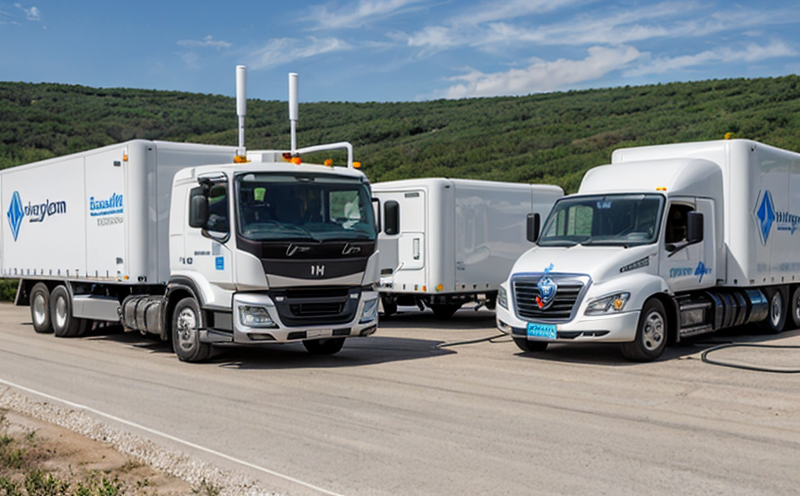ISO 23826 Hydrogen Embrittlement Resistance Testing
The ISO 23826 standard is pivotal in assessing hydrogen embrittlement resistance, a critical concern for materials used in the energy sector, especially with the growing emphasis on hydrogen fuel and electrolyzer technologies. This testing ensures that materials can withstand the harsh environments associated with these applications without compromising their integrity.
The process involves subjecting metallic components to high-pressure hydrogen gas at elevated temperatures. The test aims to identify any reduction in material ductility or increased hardness, which could indicate embrittlement. Hydrogen embrittlement is a significant concern for materials used in the production and storage of hydrogen due to its aggressive nature.
Materials commonly tested include stainless steels, nickel alloys, titanium, and their composites. The testing procedure is particularly important for ensuring that these materials maintain their mechanical properties under real-world operating conditions. This includes exposure to high-pressure hydrogen environments at temperatures relevant to fuel cell operations or electrolyzer applications.
The testing process begins with precise specimen preparation, where samples are cut from larger components to ensure representative material composition and microstructure. The specimens undergo stress-strain analysis using tensile testers capable of simulating the loading conditions expected in real-world applications. This allows for a comprehensive evaluation of how materials behave under dynamic stress.
After preparing the samples, they are subjected to hydrogen permeation testing at controlled temperature and pressure levels. The test apparatus is designed to mimic the operational environment as closely as possible, ensuring accurate assessment of material behavior. Post-test analysis includes visual inspection for cracks or fractures, hardness testing using Vickers or Rockwell scales, and microstructural examination via scanning electron microscopy (SEM).
The results are then compared against baseline data from unexposed samples to determine any changes indicative of embrittlement. These findings help quality managers and engineers make informed decisions about material selection and process optimization.
- Customer Impact and Satisfaction:
- Increase in product reliability and durability, leading to reduced downtime and maintenance costs.
- Enhanced safety by identifying materials prone to embrittlement early in the development cycle.
The testing process is not only crucial for material developers but also for suppliers ensuring that their products meet stringent quality standards. By adhering to ISO 23826, manufacturers can gain a competitive edge in the rapidly evolving hydrogen economy.
- Environmental and Sustainability Contributions:
- Reduces waste by identifying materials early that do not perform well under hydrogen exposure, avoiding costly downstream issues.
- Promotes sustainable practices by ensuring that only robust materials are used in critical applications like fuel cells and electrolyzers.
The expertise of Eurolab ensures that the testing process is conducted with precision and rigor, providing clients with accurate data they can trust. This service plays a vital role in advancing hydrogen technology while maintaining high standards of safety and performance.
Eurolab Advantages
At Eurolab, our commitment to excellence extends beyond standard compliance; we provide tailored solutions that address the unique challenges faced by your organization. Our state-of-the-art facilities are equipped with the latest technology and experienced professionals who understand the nuances of hydrogen embrittlement resistance testing.
- Experienced Professionals: Our team comprises industry leaders with deep expertise in materials science, ensuring accurate and reliable test results.
- Advanced Equipment: We utilize cutting-edge equipment capable of simulating real-world conditions, providing precise data for your testing needs.
- Comprehensive Reporting: Beyond basic test results, we provide detailed reports that include recommendations for process improvements or material adjustments based on our findings.
- Custom Solutions: Whether you require routine testing or one-off assessments, Eurolab offers flexible services designed to meet your specific requirements.
Our approach is not just about meeting regulatory standards; it's about exceeding expectations and contributing to the advancement of hydrogen technology. By leveraging our expertise and resources, we help you navigate the complexities of this rapidly evolving field with confidence.





